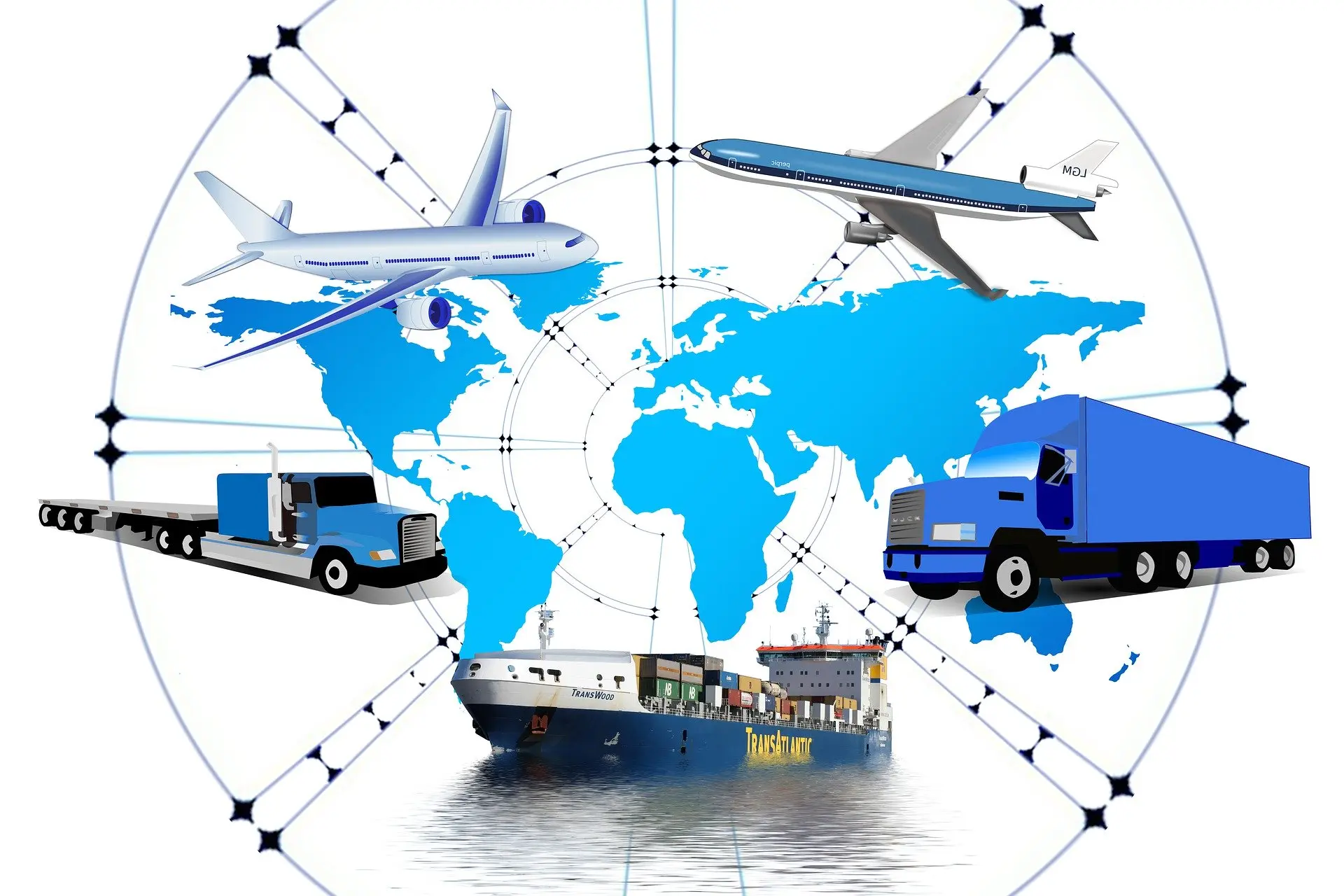Are traditional logistics approaches scheduled for extinction?
23 Mar 2020 • 7 min read

Marcin Kulawik

Having recently decided at SolveQ to expand our impact on the logistics industry, I took part in a number of events to dig deeper into their problems and needs, and met with the principal stakeholders and influencers of this rapidly-changing market.
In January 2020, I visited Los Angeles and San Francisco, and met with owners and decision-makers from several transportation businesses. Then I headed to the Logistics CIO Europe Forum in Amsterdam, where I had the chance to meet stakeholders from logistics companies spanning the entire market. These companies specialized in freight forwarding, transportation and general service providing. I've met people from Maersk, UPS, DSV Panalpina, Gebruder Weiss, JF Hilldebrand, Greencarrier, Lufthansa Cargo and Senator, to name a few.
In this article, I’m sharing my thoughts on what I've learned, and where next opportunities for the market may lie. We will be publishing additional, in-depth articles about each section further down the line.
The impact of startups
One of the top innovation drivers is to observe agile startups, and to either bring them into the fold through acquisitions, or to challenge them in their own market. However, the underlying point is how they got there first. What is a change engine? How did they leapfrog the major players?
Flexport, one of the most invested digital freight forwarding startups, has only been operating for seven years. Similarly, Freighthub, a German competitor and partner of SolveQ, was founded in 2016. Both companies leapfrogged the existing players by bringing a digital transformation driver to a frozen market. Their agility and smaller structure allowed them to bring a true digital transformation engine to a market where large players were stagnating.
The underlying question is one of position on the market. Where would your ideal position be – leading the charge, or catching up to more agile competitors through acquisitions?
Operation vs. Innovation
Established market players spanning multiple markets have an interest in focusing on sustainability and excellence, as both their clients’ business and their own depends on it. From a technical perspective, such businesses bring about unique challenges due to their global nature and requirements on stability
and compliance with all local and global laws and procedures. In theory, this is a desirable goal for any business, but scale also comes with rigidity and debt.
In 2017, a number of emerging digital threats showcased that long, drawn-out processes are not always a panacea, and that an aging technological base can be more of a vulnerability than the threat actors large companies typically consider. After all, would a customer entrust their operations, goods and services to a company whose digital assets could be wiped off the next day?
Manual processes
The biggest benefit to a digital transformation is in its ability to streamline and automate processes that would otherwise require manual input. However, these processes are often seen as fixed, or impossible to streamline by larger players. As a result, customers typically have to choose between more established and less flexible players, or nimble startups.
The skills for this transformation are widely available on the market. Meanwhile, the technological base has been battle-tested in other markets. Decisions, investments and the desire to break through the paperwork would be needed to break this stalemate, but is the effort worth the reward?
The cost of innovation
The barrier to innovation is high – brainstorming, market research and MVP implementation is a costly, expensive process. However, it is also a key factor in a company’s position in their own market. With funding being plentiful and accessible from funds wanting to diversify and expand in other markets, a company’s lack of innovation and investment in the future may very well rapidly turn against them. Where will the large players be in 5 years’ time? Will they have been able to keep up with this influx of resources?
Talents and technologies
Very often, engineering executives in companies voice the same issues with their impact on their market. These issues are lack of budget, too much focus on short-term forecasting and the inability to recruit appropriate people. Moreover, it's often challenging to orient teams to optimize operations and derive strength in emerging opportunities. Many reports corroborate this, and clearly indicate that this trend is set to grow.
The demand for digital solutions is forecasted to grow by 500% in 2021. Operational sourcing is already an issue, with a need for more than 500,000 engineers in Europe, 1M in USA, and 5M in China. As the market is limited, and most of the companies prefer to recruit in-house teams rather than embracing nearshoring experts in their market, this is set to become more and more of an issue as time goes.
As an ex-CTO, I fully understand this approach, having gone through this process of hiring, onboarding and company culture development. I've experienced its pitfalls too: attrition, stunted technological growth due to limited outside influence, and occasional inactivity.
However, the benefits of nearshoring experts far outweigh the drawbacks. Specialized companies exist, with engineers specialized in your market, with the potential to kick-start your journey and bring value in a much more agile and faster fashion, along with a sizeable TCO reduction.
Conclusion
The future for traditional transportation and logistics companies looks very challenging. You will be struggling with COVID19 for some time, with global crisis, with the trade wars, with competitors. But there is also an opportunity for you. You may even become the driver of change. And the change is to really push for innovation, do the digital transformation in an agile way. But DO IT, not talk about it.
Wish you all the best and fingers crossed.
Marcin Kulawik CEO @ SolveQ Agile Software House
Share:
Looking for expert development team?
Schedule a call with Tech Consultant

Marcin Kulawik
Founder and CEO of SolveQ. Huge fan of building things with purpose, agility, and having fun while changing the World. Loves his family, teammates, and nature.